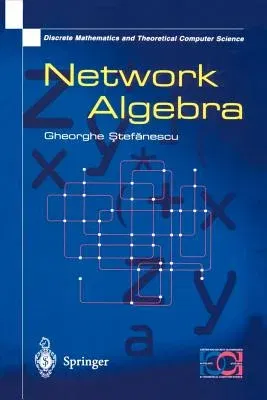Gheorghe Stefanescu
(Author)Network Algebra (Softcover Reprint of the Original 1st 2000)Paperback - Softcover Reprint of the Original 1st 2000, 12 April 2000

Qty
1
Turbo
Ships in 2 - 3 days
In Stock
Free Delivery
Cash on Delivery
15 Days
Free Returns
Secure Checkout
Part of Series
Discrete Mathematics and Theoretical Computer Science
Print Length
402 pages
Language
English
Publisher
Springer
Date Published
12 Apr 2000
ISBN-10
185233195X
ISBN-13
9781852331955
Description
Product Details
Author:
Book Edition:
Softcover Reprint of the Original 1st 2000
Book Format:
Paperback
Country of Origin:
US
Date Published:
12 April 2000
Dimensions:
23.42 x
15.62 x
2.62 cm
ISBN-10:
185233195X
ISBN-13:
9781852331955
Language:
English
Location:
London
Pages:
402
Publisher:
Weight:
630.49 gm

